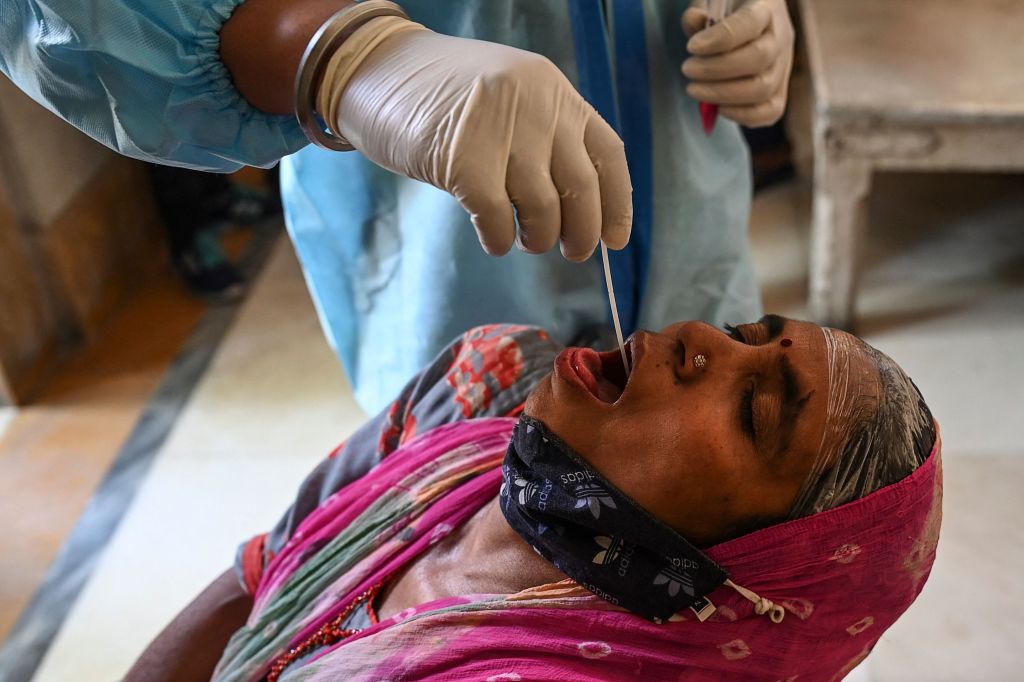Does the Indian variant of Sars-CoV-2, B1.617.2, have the capacity to escape vaccines? Is it really more transmissible than the Kent variant, and by how much? Those are the urgent questions which government scientific advisers are going to have to try to answer over the next week or two – and the answers will have profound consequences for life in Britain over the next few months. If the reopening of society and the economy is to be stalled, or even reversed – as some doctors, including the BMA seem to want – it will suppress an economic recovery, and depress an extremely large number of people who had been led to believe that the reopening was ‘irreversible’, to use the Prime Minister’s word.
We don’t have much data to answer the above questions at present, but one piece of evidence which will be taken into account is an observational study of 3,235 healthcare workers based at the Indraprastha Apollo Hospital in Delhi. The group, all of whom had been vaccinated with the Covishield vaccine – as the AstraZeneca vaccine is branded in India – were subsequently tested for Covid 19. Of the 3,235, 85 were found to have the infection, 65 of whom had been fully-vaccinated and 20 of whom had had one jab. The study, reported in the Hindustan Times, observed that the hospitalisation rate was just 0.06 per cent – which means that just two of the workers can have suffered a serious enough illness as to require hospital treatment. There were no ICU admissions or deaths in the group.
The study is of limited value in calculating the efficacy of the AstraZeneca vaccine against the B1.617.2 strain. It is an observational study, with no control group of unvaccinated people to compare against the vaccinated group. It has not been peer-reviewed and it is not clear how many of those who had been infected were infected with the B1.617.2 strain as opposed to other variants of the virus. There is, however, other data from India suggesting that B1.617.2 strain has overwhelmed all others – making up the majority of infections by mid-April .

Nevertheless, if B1.617.2 really were evading the AstraZeneca vaccine to an extent which threatened a huge third wave of infections in Britain it is hard to imagine that it wouldn’t have shown up in the Delhi study. The study’s finding appears to match early observations from Bolton, Blackburn and other ‘hotspots’ which have seen a large increase in overall infections over the past week, blamed on a surge in B1.617.2 cases. So far, there has been no increase in hospitalisations in those places.
The dream scenario is that a new variant of B1.617.2 emerges that is far more infectious than any of the other strains yet is completely benign, causing no serious illness in humans whatsoever. That would rapidly push out all other strains and effectively end the pandemic. B1.617.2 might not be that, but on the evidence so far it does not appear to pose a great danger in a population, like Britain’s, which has been heavily vaccinated, especially the more vulnerable part.







Comments